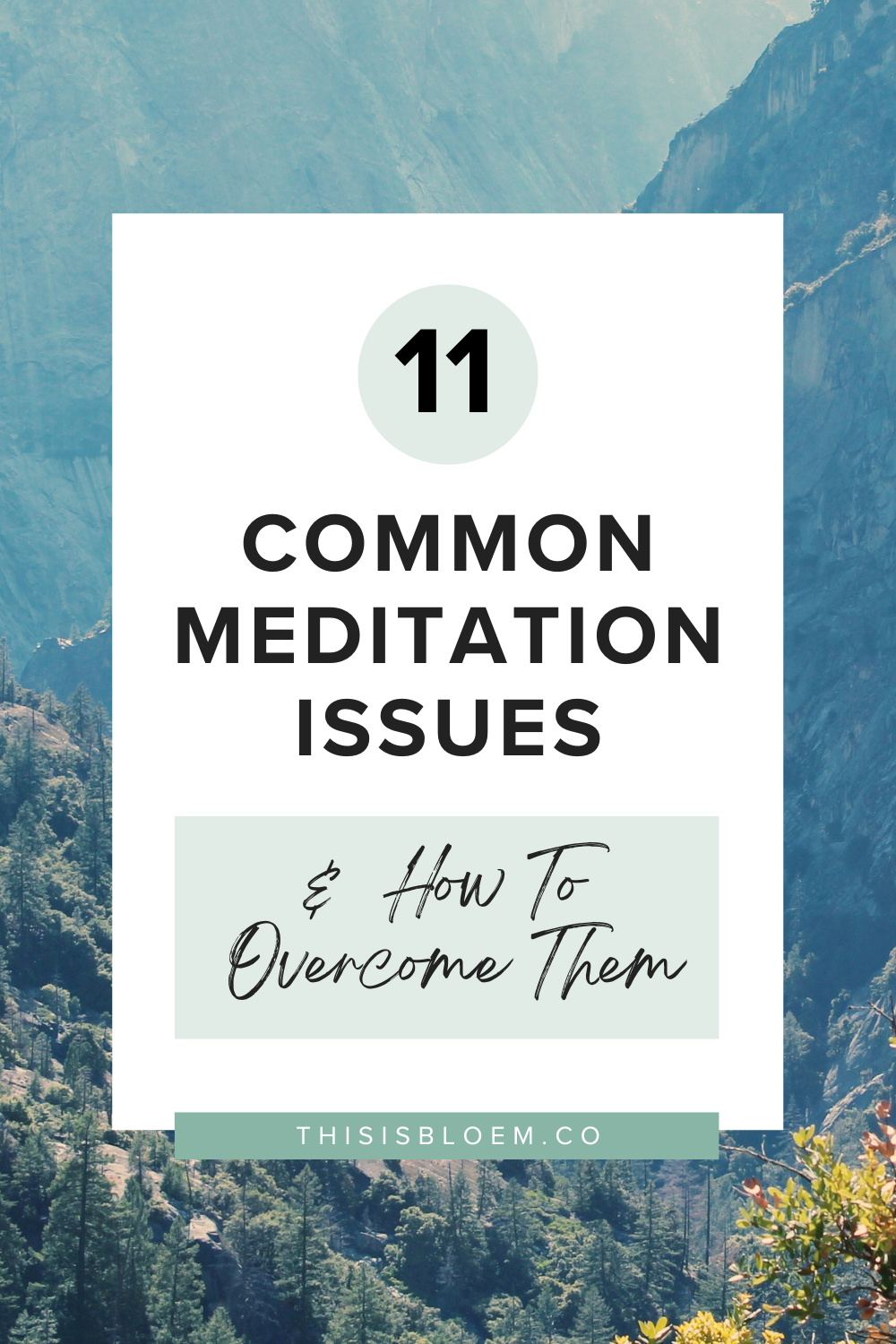Why Is It So Hard to Meditate? Advice for 11 Common Issues
Source: Mikael Blomkvist
You know it’s good for you, but why is it so hard to meditate?
I’ve definitely felt that way since I was introduced to meditation over a decade ago.
As part of my ADHD therapy, I joined a weekly mindfulness program where we did guided meditations in a group setting. Several months later, the results were amazing: I’d never felt so calm and peaceful.
But after the course ended, I was struggling to do the meditations on my own.
I was having a much harder time sitting still or focusing without the group support, and I found myself making excuses about why I couldn’t meditate.
My practice soon fell by the wayside. And it took me years to actually be able to meditate again regularly.
What I ultimately learned was that there are many different ways to meditate, and I started lowering my expectations of what it should look like.
Instead of seeing obstacles as a sign that my meditation was going wrong, I reminded myself that meditation is a practice.
There’s really no right way to meditate — the only goal is to create mindfulness.
Does your mind keep wandering? It’s totally fine. Just observe your thoughts and bring your focus to the present moment again and again.
Don’t have time for a 30-minute meditation? Just do a couple of minutes instead.
Can’t sit still? Try a walking meditation.
For those of you who also struggle with mediation, don’t give up! I hope this post will help you overcome some common obstacles and improve your meditation practice.
11 Common Meditation Issues & How to Overcome Them
1. I don't have time to meditate
When we’re stressed, adding anything to our to-do list can feel like too much.
But when your mind is busy, that’s exactly when meditating is the most beneficial.
There is an old Zen saying: “You should sit in meditation for 20 minutes a day — unless you're too busy; then you should sit for an hour.”
Generally, the busier you are, the busier your mind tends to be – making meditation even more helpful.
Although it can be hard to convince yourself to take time for meditation when you’re feeling overwhelmed, remind yourself that you only need a few minutes to meditate.
If you’re new to meditation, start with a 3- to 5-minute meditation a day and gradually build up to a longer meditation.
Another idea is to add your meditation to an existing routine until it becomes a habit.
2. I can't stay comfortable while meditating
It can be uncomfortable to sit cross-legged on a cushion or the floor for a long time. If this is the case for you (it definitely is for me!) choose a more comfortable place to meditate.
You can really meditate anywhere: upright in a chair, lying in bed, or even while you’re walking.
But it can be helpful to have a dedicated meditation space that helps you get into the right mindset.
Try meditating in different locations to see what works best for you.
3. I can't stop thinking during meditation
It’s a misconception that we should stop thinking during meditation.
The real goal is to become aware of our thoughts and observe them as they come and go.
However, this can be difficult when you’re first starting out. Especially when you have a very busy mind, it’s easy to get lost in your thoughts during meditation.
Be patient with yourself. It will get easier.
Every time your mind wanders off, take notice and then bring your focus back to the present moment.
Over time, meditation does help quiet the mind, but this is not the primary goal of the meditation session itself.
4. I get too distracted during meditation
Finding a quiet spot to meditate can be challenging.
But unless it’s something you can control (e.g. turning off your phone), let the distractions be.
Meditation is a practice of staying focused on the present moment.
To achieve this, we can use our breath, a sound, or our thoughts as a point of focus.
So you can use the traffic noises or other sounds as part of your meditation. Label each sound as it arises, for example: “car”, “air conditioning”, “music”, or “bird”.
5. I feel so bored during meditation
Source: No Revisions
Meditation can be very boring sometimes, I’m not gonna lie.
This is probably the main reason why I found it so hard to keep meditating when I first started.
I was so used to being busy and keeping my mind occupied all the time.
But because I felt so many benefits from meditation, I kept coming back to my practice.
Eventually, I learned to become more comfortable with, and even embrace, the boredom (did you know boredom makes you more creative?).
If you’re really struggling and constantly finding yourself wondering when your meditation will be over, maybe try shortening your meditation a little – until you become more used to staying present.
Or opt for an alternative form of meditation, such as yoga, walking, or cleaning.
6. I don't see the point of meditation
Source: Michelle Azevedo
The point of meditation is to become more aware of what is happening in the present moment, and it teaches us to become comfortable with what is. One of the long-term benefits is that meditation tends to quiet the mind, thereby reducing anxiety.
Many people expect immediate results from meditation, but you won’t necessarily notice a difference after one session.
Not to say you won’t, but it can take a couple of sessions or weeks before you really start seeing the benefits.
The more you meditate, the more it will have a cumulative effect. Trust the process and keep going!
7. I keep falling asleep during meditation
It’s pretty common to fall asleep during meditation because it causes our bodies to relax.
While there is nothing wrong with using meditation to fall asleep, if you’d like to stay awake, try sitting upright or meditating at a different time of day.
I like to meditate lying down in bed, but if I do so at night, I tend to fall asleep. So I generally meditate in the morning.
If you’ve tried everything and keep falling asleep during meditation, it could also be a sign that you need more sleep. In that case, try to get more zzz’s on a regular basis and see if that helps!
8. Too many uncomfortable emotions come up
Meditation brings our focus to the present moment, which can bring up unpleasant emotions or feelings that we weren’t aware of before.
Understandably, it might make you not want to meditate.
Even though it may be uncomfortable for a moment, you’ll notice that the emotions often pass very quickly — usually within 90 seconds — when you actually feel the feeling.
Focus on any physical sensations associated with the emotion and stay with this feeling until it passes.
Resisting an emotion can often be more stressful than actually feeling it. And when we keep avoiding our feelings, they will eventually come up when we least expect them.
9. I feel like I'm not doing it right
There’s really no right or wrong way to meditate, as long as your intention is to be more present.
Even if you sit for 20 minutes with endless mind chatter, that’s totally fine.
But I hear you — I often felt like I was doing it wrong when I first got into meditation. There are many types of meditation, and it can get confusing to know what you’re supposed to do exactly.
It can be helpful to use an app to guide you.
In the beginning, I used Headspace to keep me focused. I really like the creator Andy’s down-to-earth narration (vs. those sing-songy voices you often hear in guided meditations).
Another good app is Calm, which has less structured meditations with soothing nature sounds.
And there are lots of free YouTube meditation videos out there to suit your needs.
Try out different ones to see what works best for you!
10. I can't stay motivated to meditate regularly
This is one that I personally have struggled with the most. I always manage to fall out of the habit of meditating, even though I never regret meditating.
What helps to get back on track is to remind yourself of the (many) benefits and to create dedicated time for it.
I’ve found that I’m most likely to meditate in the morning, right after I wake up (which also sets me up for a peaceful start to the day).
What can also be motivating is to keep track of your progress.
11. I can’t meditate because I have ADHD
Meditation can be more challenging for people with ADHD, but being neurodivergent myself, I can assure you that you can meditate.
That said, it did take me a long time to be able to do a traditional seated meditation for an extended time.
What helped me get more comfortable with meditation was to practice movement-based forms of mindfulness, such as walking meditation, Yin Yoga, or Tai Chi.
Once you get more used to being still, it becomes easier to do a more “formal” seated meditation.
Final Thoughts
Even if you’ve experienced the benefits, sticking to a regular meditation practice can be a challenge. Whether it’s due to feeling overwhelmed, uncomfortable, or doubtful, sitting with ourselves isn’t an easy task.
But what can help is to lower our expectations of what mediation should be, and remind ourselves that it’s an informal practice that can take many forms.
Even though it can be challenging, meditation helps us become more comfortable in the present moment. And as a result, we experience more peace and calm.
Xo,
Annie
Want to save this article for later? Pin it on Pinterest! 📌
Share this article:







